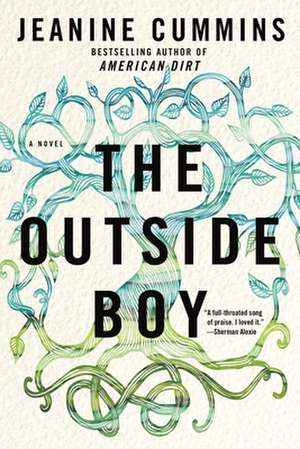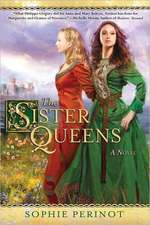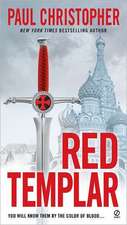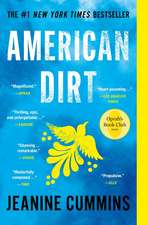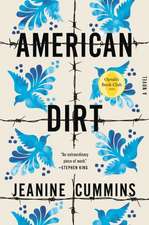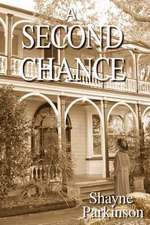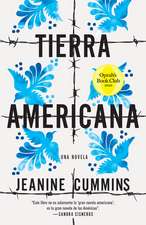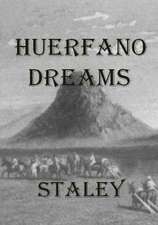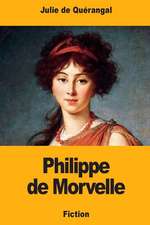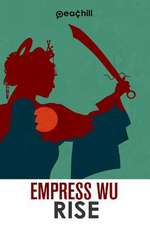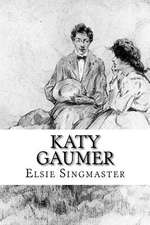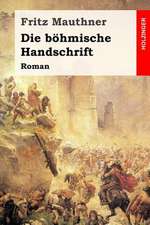The Outside Boy
Autor Jeanine Cumminsen Limba Engleză Paperback – 31 mai 2010 – vârsta de la 18 ani
Read Jeanine Cummins's posts on the Penguin Blog.
A poignant debut novel of an Irish gypsy boy's childhood in the 1950's by the author of the bestselling memoir A Rip in Heaven.
Ireland, 1959: Young Christy Hurley is a Pavee gypsy, traveling with his father and extended family from town to town, carrying all their worldly possessions in their wagons. Christy carries with him a burden of guilt as well, haunted by the story of his mother's death in childbirth. The peripatetic life is the only one Christy has ever known, but when his grandfather dies, everything changes. His father decides to settle down temporarily in a town where Christy and his cousin can attend mass and receive proper schooling. But they are still treated as outsiders.
As Christy's exposure to a different life causes him to question who he is and where he belongs, the answer may lie with an old newspaper photograph and a long-buried family secret that could change his life forever...
A poignant debut novel of an Irish gypsy boy's childhood in the 1950's by the author of the bestselling memoir A Rip in Heaven.
Ireland, 1959: Young Christy Hurley is a Pavee gypsy, traveling with his father and extended family from town to town, carrying all their worldly possessions in their wagons. Christy carries with him a burden of guilt as well, haunted by the story of his mother's death in childbirth. The peripatetic life is the only one Christy has ever known, but when his grandfather dies, everything changes. His father decides to settle down temporarily in a town where Christy and his cousin can attend mass and receive proper schooling. But they are still treated as outsiders.
As Christy's exposure to a different life causes him to question who he is and where he belongs, the answer may lie with an old newspaper photograph and a long-buried family secret that could change his life forever...
Watch a Video
| Toate formatele și edițiile | Preț | Express |
|---|---|---|
| Paperback (2) | 53.53 lei 3-5 săpt. | +27.13 lei 7-13 zile |
| Headline – 10 iun 2020 | 53.53 lei 3-5 săpt. | +27.13 lei 7-13 zile |
| New American Library – 31 mai 2010 | 99.83 lei 3-5 săpt. |
Preț: 99.83 lei
Nou
Puncte Express: 150
Preț estimativ în valută:
19.10€ • 19.94$ • 15.81£
19.10€ • 19.94$ • 15.81£
Carte disponibilă
Livrare economică 14-28 martie
Preluare comenzi: 021 569.72.76
Specificații
ISBN-13: 9780451229489
ISBN-10: 0451229487
Pagini: 360
Dimensiuni: 137 x 206 x 25 mm
Greutate: 0.32 kg
Editura: New American Library
ISBN-10: 0451229487
Pagini: 360
Dimensiuni: 137 x 206 x 25 mm
Greutate: 0.32 kg
Editura: New American Library
Notă biografică
Jeanine Cummins is the author of the bestselling memoir A Rip in Heaven, which People magazine called: “…a straightforward, expertly paced narrative that reads like a novel.” She lives in New York City
Extras
PROLOGUE
IRELAND, 1959
I was dreaming of purple horses. Myself on one and Martin on the other, and we was bareback, and we was racing. These wasn't no strong, slow, piebald gypsy ponies like most of us travellers had in them days in Ireland, for pulling our wagon-homes behind us wherever we went. No, in this dream, me and Martin raced thundering thoroughbreds at a proper race meeting, like at Punchestown in Dublin. And the crowd waved their colors and they roared for us, never mind that we was travellers. They loved us anyway. Our purple stallions was sixteen hands high at least, and we was so swift on them we nearly took flight. I had the coarse thickness of my horse's mane wrapped full around my fist, and I squeezed his big, strong neck with my knees and kept my head down close beside his twitching ear. I whispered to him, "Go on, bucko," and he went and went, and we was leaving Martin and his horse in our dust. And then there was an almighty screeching howl that went up, and my purple horse vanished, and I was sitting up straight as a fencepost in the dark, my blanket wrapped 'round my fist and my heart hammering.
Dad was sitting up beside me, too, and we blinked confusion at each other in the dark. We wasn't sure what'd wakened us until we heard it again: a keen, raw and sharp. Dad's hands was like ghosts between us, and he gripping his own blanket close to his chest.
"What…" he started, but before he could finish the question, the wail rose up again and engulfed the camp. I could feel every hair on my body, and the wraithlike cry seemed liquid, seeping up through the planks of the wagon and into our clammy nighttime skins. There was a terror in that sound that was all new to me.
"Is it a bansídhe?" I asked Dad.
He looked at me like I was gone soft in the head. "Come outta that nonsense, Christopher," he said to me. "You know there's no such thing as a bloody bansídhe."
He shook his head at me crossly, and I felt stupid, and was glad for the feeling stupid. Of course there was no such thing as bansídhes. I was nearly twelve years of age—old enough to know better. But then there was a sudden BANG BANG on the door of the wagon, and I could feel my heartbeat clamber into my throat. My heels stuck into the floorboards, and I did a backwards crab-gallop until I smacked into the wall. My chest was heaving as I stared past my dad at the wagon door. He was staring at it, too, with eyes as wide open as mine.
"Dad?" I said.
I wanted him to reassure me—just a word, a squeeze—that it would be okay.
"Wait there, Christopher," he said, and he started to move toward the door.
And now the clatter at the door grew louder, and there was nowhere for us to go, only to cower inside and await the doom of the shrieking specter who was rattling at our wagon door. I stopped breathing altogether, and the door creaked and swung on its hinge, gaping open into the frigid night. The cold air flew in at once and reached my bare ankles. I trembled over them, folded my arms around my scrawny knees, and shook like a wet hound.
"Christopher!" the specter shrieked, and it was my granny.
She was calling my dad, who I was named after. Granny, heaped in blankets outside in the not-yet pinkening light, her hair and eyes wild. Her mouth stood open and revealed all the gummy graves where her teeth used to be. She looked so unnatural that my terror was hardly relieved at all.
Dad was only in his bare feet, and he made a frantic silhouette, leaping out of the wagon after his mother. I crawled to the door behind him and watched Granny deliver her unholy cries into the dark camp. I pulled my blue ankles up and tucked my blanket 'round them while I watched the horrible scene unfold: Granny, down on her knees beside the deadened fire, rocking back and over so hard I feared she would topple into the ashes. The keen she let up was so thick and tender I could nearly see it coming out of her, her breath spiraling out violently in torrid colors, defeating the darkness and drenching the camp with grief.
"Mam," my dad said quietly.
He was in front of his mother now, and he'd his hands on her shoulders. He shook her a small bit, but she took no notice of him. She tore at her white hair until she looked like a proper bansídhe herself. I started shaking again, and I wanted to believe it was from the cold, but my stomach was turning too.
"Mam!" Dad said again, louder this time, and shook her more roughly.
For a moment, I thought he would raise a hand to her, to snap her out of the state she was in. I swallowed all the billowing colors and held them fast inside me, but my knuckles stayed white, gripping the doorframe of the wagon while I watched. Uncle Finty was there now, too, and they both looked small and helpless, standing beside the ruined fire watching their mother weep.
My cousin Martin's head popped up in front of me then, and without a sound or a word, he swung the full weight of his body up on one arm and into the wagon beside me. He pulled open my blanket and I was blasted with the cold again, until he burrowed and folded us in tight. In the closeness, he smelled like tree bark and moss. We watched our fathers; we tried not to watch Granny.
"Go and check the wagon, Christopher," Finty said to Dad.
My dad hesitated, put his hand on his brother's shoulder for a long moment, like he was gathering strength for what he knew he'd find. Then he nodded and turned toward Granny's wagon door. It was hanging open, too, and she howled again as he went. I shivered under our blanket, to hear the sound of that wordless pain, unleashed and raw, galloping around the camp. Granny was like a toothless wolf. We watched without blinking while my dad disappeared into the wagon. Martin squirmed in even closer beside me, and I could feel his elbow stuck between two of my shivering ribs, like we was twins for a minute, instead of cousins. We was joined at the eyes and ears, joined at the dread. Everything was silent and stretched—only the tidal rhythm of our shared breath pushed the seconds forward. I wished for my mother.
Dad came out again, shaking his head.
"He's gone," he said.
His face was pale in the moonlight. Gone. I knew what he meant. He meant my grandda.
My stomach clutched, but my mind resisted. I wasn't ready. My fingernails dug into the flesh of Martin's arm, but he didn't wince. He didn't even move—only a shiver in his neck. A gulp.
"Grandda," I whispered, and I could feel a flood in my head, a distant, unleashed roar inside me. I dammed it up quick.
"Will we waken him, do you think?" Granny said.
Martin and I looked at each other in horror.
"Is she gone as well?" he asked me. "Gone in the head, like?"
Martin was always asking me things, even though he was a couple months older than me. He was twelve already. I shook my head and tried to answer him. But just like Grandda, my voice was away.
We stayed there while the sky lightened lilac at the edges. Me and Martin, joined at the hair, joined at the knuckles. We didn't move, didn't speak. I think he felt it too—some unspoken sense that if we stayed very still, if we blurred into each other, it mightn't be real. We tried that elusive magic of stillness, hoping like we always did that we might capture it, and it might be the answer to everything. But in truth, we was children of motion, and we didn't know how to stand still then. We didn't even know that we could.
IRELAND, 1959
I was dreaming of purple horses. Myself on one and Martin on the other, and we was bareback, and we was racing. These wasn't no strong, slow, piebald gypsy ponies like most of us travellers had in them days in Ireland, for pulling our wagon-homes behind us wherever we went. No, in this dream, me and Martin raced thundering thoroughbreds at a proper race meeting, like at Punchestown in Dublin. And the crowd waved their colors and they roared for us, never mind that we was travellers. They loved us anyway. Our purple stallions was sixteen hands high at least, and we was so swift on them we nearly took flight. I had the coarse thickness of my horse's mane wrapped full around my fist, and I squeezed his big, strong neck with my knees and kept my head down close beside his twitching ear. I whispered to him, "Go on, bucko," and he went and went, and we was leaving Martin and his horse in our dust. And then there was an almighty screeching howl that went up, and my purple horse vanished, and I was sitting up straight as a fencepost in the dark, my blanket wrapped 'round my fist and my heart hammering.
Dad was sitting up beside me, too, and we blinked confusion at each other in the dark. We wasn't sure what'd wakened us until we heard it again: a keen, raw and sharp. Dad's hands was like ghosts between us, and he gripping his own blanket close to his chest.
"What…" he started, but before he could finish the question, the wail rose up again and engulfed the camp. I could feel every hair on my body, and the wraithlike cry seemed liquid, seeping up through the planks of the wagon and into our clammy nighttime skins. There was a terror in that sound that was all new to me.
"Is it a bansídhe?" I asked Dad.
He looked at me like I was gone soft in the head. "Come outta that nonsense, Christopher," he said to me. "You know there's no such thing as a bloody bansídhe."
He shook his head at me crossly, and I felt stupid, and was glad for the feeling stupid. Of course there was no such thing as bansídhes. I was nearly twelve years of age—old enough to know better. But then there was a sudden BANG BANG on the door of the wagon, and I could feel my heartbeat clamber into my throat. My heels stuck into the floorboards, and I did a backwards crab-gallop until I smacked into the wall. My chest was heaving as I stared past my dad at the wagon door. He was staring at it, too, with eyes as wide open as mine.
"Dad?" I said.
I wanted him to reassure me—just a word, a squeeze—that it would be okay.
"Wait there, Christopher," he said, and he started to move toward the door.
And now the clatter at the door grew louder, and there was nowhere for us to go, only to cower inside and await the doom of the shrieking specter who was rattling at our wagon door. I stopped breathing altogether, and the door creaked and swung on its hinge, gaping open into the frigid night. The cold air flew in at once and reached my bare ankles. I trembled over them, folded my arms around my scrawny knees, and shook like a wet hound.
"Christopher!" the specter shrieked, and it was my granny.
She was calling my dad, who I was named after. Granny, heaped in blankets outside in the not-yet pinkening light, her hair and eyes wild. Her mouth stood open and revealed all the gummy graves where her teeth used to be. She looked so unnatural that my terror was hardly relieved at all.
Dad was only in his bare feet, and he made a frantic silhouette, leaping out of the wagon after his mother. I crawled to the door behind him and watched Granny deliver her unholy cries into the dark camp. I pulled my blue ankles up and tucked my blanket 'round them while I watched the horrible scene unfold: Granny, down on her knees beside the deadened fire, rocking back and over so hard I feared she would topple into the ashes. The keen she let up was so thick and tender I could nearly see it coming out of her, her breath spiraling out violently in torrid colors, defeating the darkness and drenching the camp with grief.
"Mam," my dad said quietly.
He was in front of his mother now, and he'd his hands on her shoulders. He shook her a small bit, but she took no notice of him. She tore at her white hair until she looked like a proper bansídhe herself. I started shaking again, and I wanted to believe it was from the cold, but my stomach was turning too.
"Mam!" Dad said again, louder this time, and shook her more roughly.
For a moment, I thought he would raise a hand to her, to snap her out of the state she was in. I swallowed all the billowing colors and held them fast inside me, but my knuckles stayed white, gripping the doorframe of the wagon while I watched. Uncle Finty was there now, too, and they both looked small and helpless, standing beside the ruined fire watching their mother weep.
My cousin Martin's head popped up in front of me then, and without a sound or a word, he swung the full weight of his body up on one arm and into the wagon beside me. He pulled open my blanket and I was blasted with the cold again, until he burrowed and folded us in tight. In the closeness, he smelled like tree bark and moss. We watched our fathers; we tried not to watch Granny.
"Go and check the wagon, Christopher," Finty said to Dad.
My dad hesitated, put his hand on his brother's shoulder for a long moment, like he was gathering strength for what he knew he'd find. Then he nodded and turned toward Granny's wagon door. It was hanging open, too, and she howled again as he went. I shivered under our blanket, to hear the sound of that wordless pain, unleashed and raw, galloping around the camp. Granny was like a toothless wolf. We watched without blinking while my dad disappeared into the wagon. Martin squirmed in even closer beside me, and I could feel his elbow stuck between two of my shivering ribs, like we was twins for a minute, instead of cousins. We was joined at the eyes and ears, joined at the dread. Everything was silent and stretched—only the tidal rhythm of our shared breath pushed the seconds forward. I wished for my mother.
Dad came out again, shaking his head.
"He's gone," he said.
His face was pale in the moonlight. Gone. I knew what he meant. He meant my grandda.
My stomach clutched, but my mind resisted. I wasn't ready. My fingernails dug into the flesh of Martin's arm, but he didn't wince. He didn't even move—only a shiver in his neck. A gulp.
"Grandda," I whispered, and I could feel a flood in my head, a distant, unleashed roar inside me. I dammed it up quick.
"Will we waken him, do you think?" Granny said.
Martin and I looked at each other in horror.
"Is she gone as well?" he asked me. "Gone in the head, like?"
Martin was always asking me things, even though he was a couple months older than me. He was twelve already. I shook my head and tried to answer him. But just like Grandda, my voice was away.
We stayed there while the sky lightened lilac at the edges. Me and Martin, joined at the hair, joined at the knuckles. We didn't move, didn't speak. I think he felt it too—some unspoken sense that if we stayed very still, if we blurred into each other, it mightn't be real. We tried that elusive magic of stillness, hoping like we always did that we might capture it, and it might be the answer to everything. But in truth, we was children of motion, and we didn't know how to stand still then. We didn't even know that we could.
Descriere
A poignant debut novel of an Irish gypsy boy's childhood in the 1950's by theauthor of the bestselling memoir "A Rip in Heaven."
